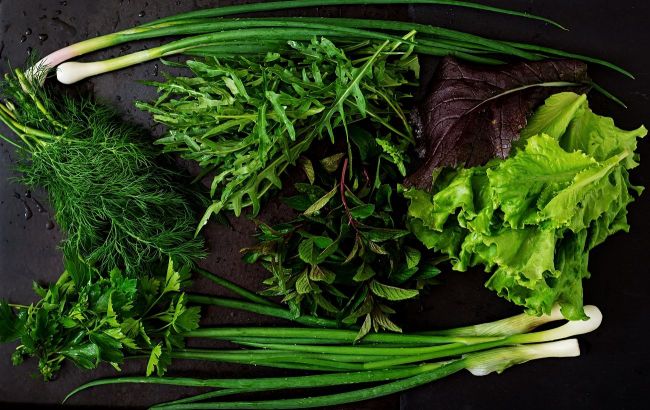Which is healthier: Parsley or dill?
 Which herb is healthier — parsley or dill (photo: freepik)
Which herb is healthier — parsley or dill (photo: freepik)
Parsley and dill are an integral part of Ukrainian cuisine, adding aroma and health benefits to dishes. But which of these popular herbs is better for your health? The answer might surprise you — it's not as straightforward as it seems.
Parsley — a source of vitamins and antioxidants
This herb is rich in vitamin K, which is essential for blood clotting and bone strength, as well as vitamin C, a powerful antioxidant that supports the immune system. Parsley also contains vitamin A for eye and skin health, anti-inflammatory flavonoids, iron, and potassium, making it valuable for cardiovascular health. It’s often used to aid digestion and as a natural breath freshener.
Dill — a healer with unique compounds
Dill also contains vitamins A and C, but its unique advantage lies in its essential oils, such as carvone and limonene. These compounds are known for their antibacterial and potentially anti-cancer properties. Traditionally, dill helps with digestion, relieves spasms, fights bloating, and has a mild calming effect. It’s also a decent source of calcium and manganese, contributing to strong bones.
So, which is healthier? The answer may surprise you
In truth, both herbs are true superfoods that deserve a place in your diet. If you compare the amount of certain vitamins like K and C per 100 grams, parsley usually comes out on top. However, dill stands out with its unique essential oils that give it special therapeutic properties for digestion and calming the nervous system.
The key point is that they don’t compete — they complement each other. The difference in their benefits comes down not to which one is “better,” but to which biologically active compounds your body needs most.
How to include them in your diet for maximum benefit?
The best strategy is to use both herbs in your daily meals. Add parsley to salads, smoothies, soups, and main dishes — it pairs wonderfully with meat and fish. Dill goes great with fish, potatoes, dairy products, eggs, and fresh vegetable salads.
This material is for informational purposes only and should not be used for medical diagnosis or self-treatment. Our goal is to provide readers with accurate information about symptoms, causes, and methods of detecting diseases. RBС-Ukraine is not responsible for any diagnoses that readers may make based on materials from the resource. We do not recommend self-treatment and advise consulting a doctor in case of any health concerns.

